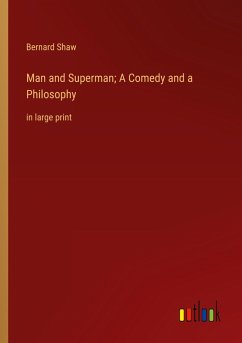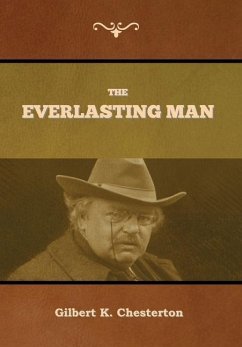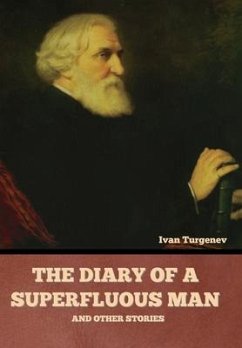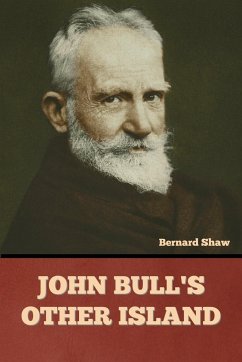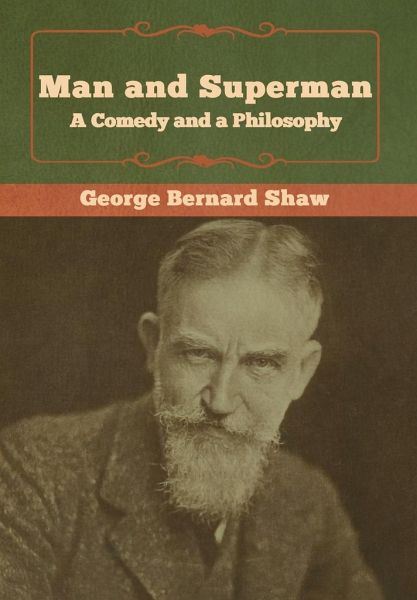
Man and Superman; a Comedy and a Philosophy
Versandkostenfrei!
Versandfertig in über 4 Wochen
25,99 €
inkl. MwSt.
Weitere Ausgaben:

PAYBACK Punkte
13 °P sammeln!
Man and Superman by George Bernard Shaw was written in 1903 as a four act drama, responding to those who had questioned Shaw as to why he had never written a play based on the Don Juan theme. Man and Superman opened at The Royal Court Theatre in London on 23 May 1905 without the performance of the 3rd Act. A part of the act, Don Juan in Hell (Act 3, Scene 2), was performed when the drama was staged on June 4, 1907 at the Royal Court. The play was not produced in its entirety until 1915 by the Travelling Repertory Company at the Lyceum Theatre, Edinburgh. The long third act of the play is often...
Man and Superman by George Bernard Shaw was written in 1903 as a four act drama, responding to those who had questioned Shaw as to why he had never written a play based on the Don Juan theme. Man and Superman opened at The Royal Court Theatre in London on 23 May 1905 without the performance of the 3rd Act. A part of the act, Don Juan in Hell (Act 3, Scene 2), was performed when the drama was staged on June 4, 1907 at the Royal Court. The play was not produced in its entirety until 1915 by the Travelling Repertory Company at the Lyceum Theatre, Edinburgh. The long third act of the play is often cut. Don Juan in Hell consists of a philosophical debate between Don Juan (played by the same actor who plays Jack Tanner), and the Devil, with Doña Ana (Ann) and the Statue of Don Gonzalo, Ana's father (Roebuck Ramsden, an aged acquaintance of Tanner's and Ann's Guardian) looking on. Don Juan in Hell is often performed separately as a play in its own right, most famously in the 50's in a concert version with Charles Boyer as Don Juan, Charles Laughton as the Devil, Cedric Hardwicke as the Commander, and Agnes Moorehead as Doña Ana. This version was also released as a spoken word album on LP, but has yet to appear on CD. However, the complete performance recording is now available at various sites on the Internet. Although Man and Superman can be performed as a light comedy of manners Shaw intended the drama to be something much deeper, as suggested by the title. This title comes from Friedrich Nietzsche's philosophical ideas about the "Übermensch" ("Superman"). The plot centers on John Tanner, author of "The Revolutionist's Handbook and Pocket Companion," which is published with the play as a 58-page appendix. Tanner is a confirmed bachelor despite the pursuits of Ann Whitefield and her persistent efforts to make him marry her. Ann is referred to as "the Life Force" and represents Shaw's view that in every culture, it is the women who force the men to marry them rather than the men who take the initiative.






